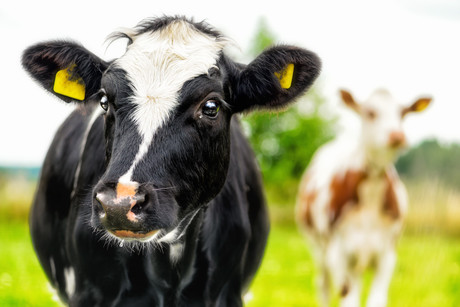ACCC criticises progress on cattle industry reform

Despite calling for greater transparency in Australian cattle and beef markets last year, the Australian Competition and Consumer Commission (ACCC) has criticised the industry for making “little progress”.
In a final report released in March 2017, the ACCC set out 15 recommendations to bring about better transparency, such as expanded reporting of prices for non-auction sales, greater transparency of processors price offers, simplification of pricing grids, and measures to increase transparency in saleyard auctions.
But according to a review by the consumer watchdog, the industry has largely failed to implement these reforms over the past year.
“There have been some improvements to market reporting and producer education activities, but the level of action is disappointing overall,” ACCC Commissioner Mick Keogh said.
The ACCC’s final report found that data regarding cattle prices and sales published by Meat & Livestock Australia (MLA) had a number of gaps and inconsistencies which made it difficult to interpret. However, it has acknowledged that MLA made access to this information easier via the market reports section on its website.
Despite this improvement, it highlighted that the “unwillingness” of market players to disclose information has stunted progress.
“Around 90% of processor cattle transactions are direct purchases from farmers but the prices of these transactions are not reported. We see this as a serious risk to the efficiency of the industry,” Keogh said.
“Inaction suggests that either industry participants do not understand the value of transparency, or it does not suit the interests of those who are in a position to make improvements.”
Ultimately, better transparency and efficiency in the cattle market relies on the voluntary supply of information; therefore, it must be a collaborative effort from the whole industry including buyers, agents and representative organisations.
The Red Meat Advisory Council (RMAC) was tasked with monitoring compliance to the ACCC’s recommendations in 2017, but the ACCC has been particularly critical of its reluctance to effectively oversee implementation over the past 12 months.
According to the review, the RMAC did not believe that this responsibility fell within its role and stated in February 2018 that 12 of the 15 recommendations are “in progress” — an assessment that the ACCC disagreed with.
Considering the RMAC’s lack of enthusiasm and the consequential lack of progress on the recommendations, Keogh said, “We no longer believe it should have this leadership role.
“We will instead engage with Commonwealth and state governments through the Agriculture Ministers’ Forum to push for implementation of the recommendations.”
Expanding beyond biscuits: Arnott's acquires Prolife Foods
The Arnott's Group has expanded its 'better-for-you' snacking portfolio with the...
FDA investigates PFAS in seafood
The US Food and Drug Administration (FDA) expands its investigation on per- and polyfluoroalkyl...
Cell-cultured quail moving closer to Australians' plates
FSANZ is undertaking a second round of consultation on a proposed approach to allow cell-cultured...














